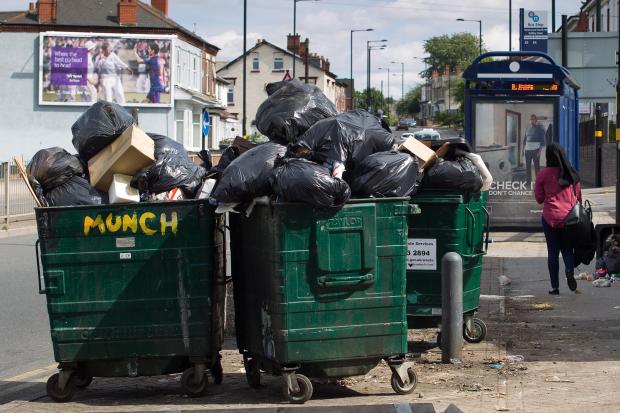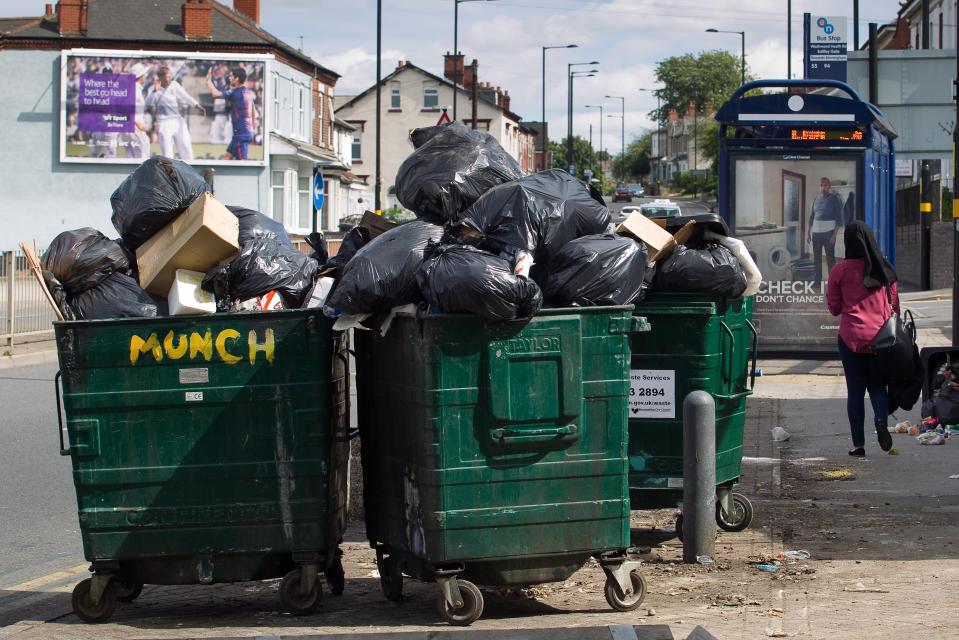Birmingham bin strike – why is the city council making bin workers redundant and which collections are affected?
The city faces more rubbish chaos as workers join the picket line to protest over job losses

THE bin workers of Birmingham are up in arms over threatened redundancies in a dispute that could last until next year.
After talks broke down between the council and union chiefs, the city faces more rubbish chaos as workers join the picket line to protest over job losses.
Why are the bin workers on strike?
After talks between Birmingham City Council and union members broke down at the end of August, bin workers returned to the picket lines at the start of September.
The council says it wants to modernise its service to save £5million a year.
But Unite fears that more than 120 refuse collectors' jobs are at risk.
A City Council spokesman said: "Positive discussions are continuing to take place with the unions and we hope to be able to resolve this sooner rather than later."
Unite said: "There were talks earlier in the week with the chief executive of Birmingham council where there was a full and frank exchange of views.
"We regret that the people of Birmingham are suffering from the lack of collections but would ask them to step into the shoes of our members who have taken strike action as a last resort and at financial loss to themselves in order to protect their already low wages.
"We urge council bosses to resolve this dispute before it escalates further."
Why do talks keep breaking down?
Earlier in the summer a seven-week strike action took place, beginning on June 30.
Binmen staged a daily two-hour stoppage, increased to three hours a day as the dispute intensified.
Mountains of rubbish piled up on the streets across the city and forced Brummies to volunteer to remove the waste themselves.
The strike was eventually suspended on August 16 after talks between Unite and the city council.
Conciliation service Acas said the council had accepted the workers' case and restored the jobs of grade three workers, who are responsible for safety at the back of refuse vehicles.
But the council went back on the deal and said a meeting due on September 1 would not happen.
A council report had said the deal was unaffordable, and on August 31 the authority said redundancy notices would still be issued to grade three workers.
The Unite union described the move as a "deeply provocative act".
Council leader John Clancy had faced calls from his own Labour councillors to quit over his "bungled" handling of the dispute.
On September 12 he did just that.
Mr Clancy accepted he had made mistakes during the strike "for which he is sorry".
He added "frenzied media speculation" was beginning to harm the council and the Birmingham Labour Party, one week after the party's councillors proposed a vote of no-confidence in his leadership
What will happen in this strike and which collections are affected?
Bin workers were expected to walk out for three hours on a daily basis at 7am, 10.30am and 1pm - from September 1.
The union warned industrial action "could extend until the new year".
It will mean fewer collections that usual. The council has issued of when residents can expect their bins to be emptied over the next few weeks.
Pest controllers warned in August the city could be overrun by a giant plague of rats because of the strike.
Horrified residents said they had seen binmen drive past overflowing wheelie bins and rats running riot in the city.
There were also claims poorer areas of the city were left with piles of stinking rubbish while more affluent districts were spotless.














